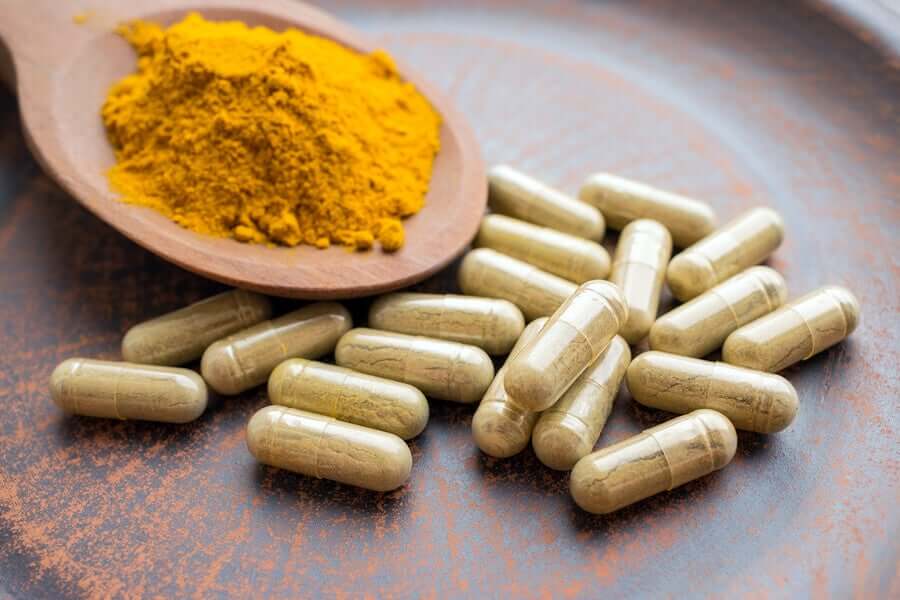7 Daily Supplements for Ideal Health

The world of natural supplements is very extensive and varied. Therefore, we should get to know them a little and consult with our family doctor before deciding to incorporate any of them into our diet.
Although they seem to beneficial all around, in reality, we must be cautious with them because they can cause interactions and, consequently, adverse reactions.
Below, we’ll discuss which natural supplements are usually considered necessary for good health.
When should I take supplements?
There are several popular beliefs about supplements. One of them is that, after a certain age, they’re necessary to maintain your body’s good health. However, the truth is that not all people need to take them.
If a person is healthy, maintaining good lifestyle habits will be enough. On the other hand, if the person has some kind of deficiency or needs a specific nutrient to feel better, for whatever reason, it’s possible that their doctor may consider prescribing a specific supplement for a certain period of time.
In general, you shouldn’t consume consume vitamin supplements, even if they’re natural, on a continuous basis, as they can be harmful to your health.
Although they provide nutrients, you shouldn’t depend on their consumption alone for good health. Above all, the most important thing is to maintain healthy and consistent lifestyle habits.
In addition, you should remember that a proper diet is able to provide the body with everything it needs to function properly, at any stage of life.
Read also: 8 Causes of Magnesium Deficiency and How to Fix It
The best daily supplements for ideal health

1. Magnesium
Magnesium is an essential mineral for your body. While magnesium is found in many foods, poor soil quality, which keeps getting worse and less nutritious, leads to many people being deficient in it.
In some caess, it’s advisable to take daily supplements in order to.
- Regulate intestinal activity
- Balance your nervous system
- Relaxe your blood vessels
- Nourish bones and muscles
- Regulate blood sugar levels
2. Vitamin C
Vitamin C is a nutrient that acts as an antioxidant and can help reduce the impact of oxidative stress. It also contributes to the production of collagen.
According to experts, taking vitamin C supplements produces the following effects:
- Strengthening of the immune system
- Healthier skin, as well as stronger bones and joints
3. Spirulina
Spirulina is one of the food supplements that’s become very famous in recent years with the rise of fitness trends. It was said to be a real superfood and, therefore, many people didn’t hesitate to incorporate it into their diet through supplements.
Supposedly, it can help to:
- Give you energy and vitality
- Improve your skin, hair, and nails
- Help you lose weight in a healthy way
Don’t miss: 10 Incredible Benefits of Sea Salt
4. Calcium
For many years, it’s been believed that it’s necessary to take calcium supplements from time to time to maintain bone health. However, this isn’t as true as many believe it to be.
It’s only necessary to take calcium supplements if your doctor tells you to do so. Otherwise, integrating various sources of this nutrient, in a balanced way, into the diet is sufficient.
5. Brewer’s yeast
Brewer’s yeast is a supplement that’s often recommended for vegetarians and vegans, as it helps them to supplement their diet. However, there are those who consider that it could also be beneficial for athletes, since it could help to obtain extra vitamins, minerals, and energy.
You can take it at breakfast, mixed with a little juice, milk or yogurt, or in capsules or tablets.
6. Turmeric

Since turmeric is attributed with anti-inflammatory and antioxidant properties (due to its curcumin content), the consumption of turmeric supplements may be beneficial to health.
7. Probiotics
Probiotics are supplements that improve intestinal bacteria flora. They aren’t just associated with proper functioning of your bowels, but are also fundamental for good overall health.
Your intestines help with the absorption of nutrients and your immune system, making it essential to keep them healthy.
Avoid taking them without your doctor’s authorization
Avoid taking supplements without your doctor’s authorization. Remember that these, however beneficial they may be at specific times, aren’t always a good idea. In addition, you must take certain issues into account so that they can provide results and you can take advantage of them correctly.
All cited sources were thoroughly reviewed by our team to ensure their quality, reliability, currency, and validity. The bibliography of this article was considered reliable and of academic or scientific accuracy.
- Fawcett, W. J., Haxby, E. J., & Male, D. A. (1999). Magnesium: Physiology and pharmacology. British Journal of Anaesthesia. https://doi.org/10.1093/bja/83.2.302
- Oudemans-van Straaten, H. M., Spoelstra-de Man, A. M. E., & de Waard, M. C. (2014). Vitamin C revisited. Critical Care. https://doi.org/10.1186/s13054-014-0460-x
- Pittler, M. (2010). Herbs and Natural Supplements. Focus on Alternative and Complementary Therapies. https://doi.org/10.1111/j.2042-7166.2005.tb00337.x
- Spolaore, P., Joannis-Cassan, C., Duran, E., & Isambert, A. (2006). Commercial applications of microalgae. Journal of Bioscience and Bioengineering. https://doi.org/10.1263/jbb.101.87
This text is provided for informational purposes only and does not replace consultation with a professional. If in doubt, consult your specialist.








